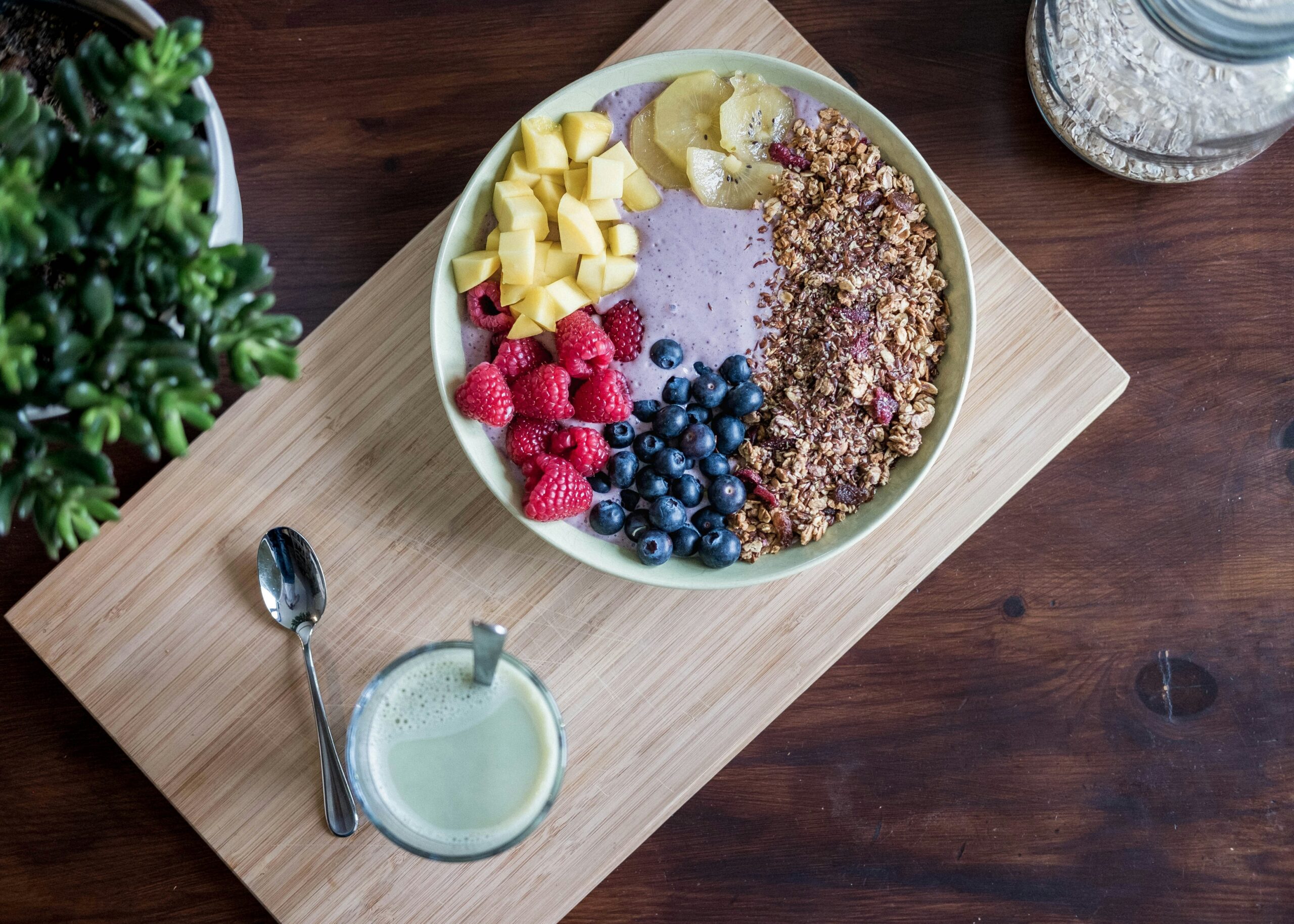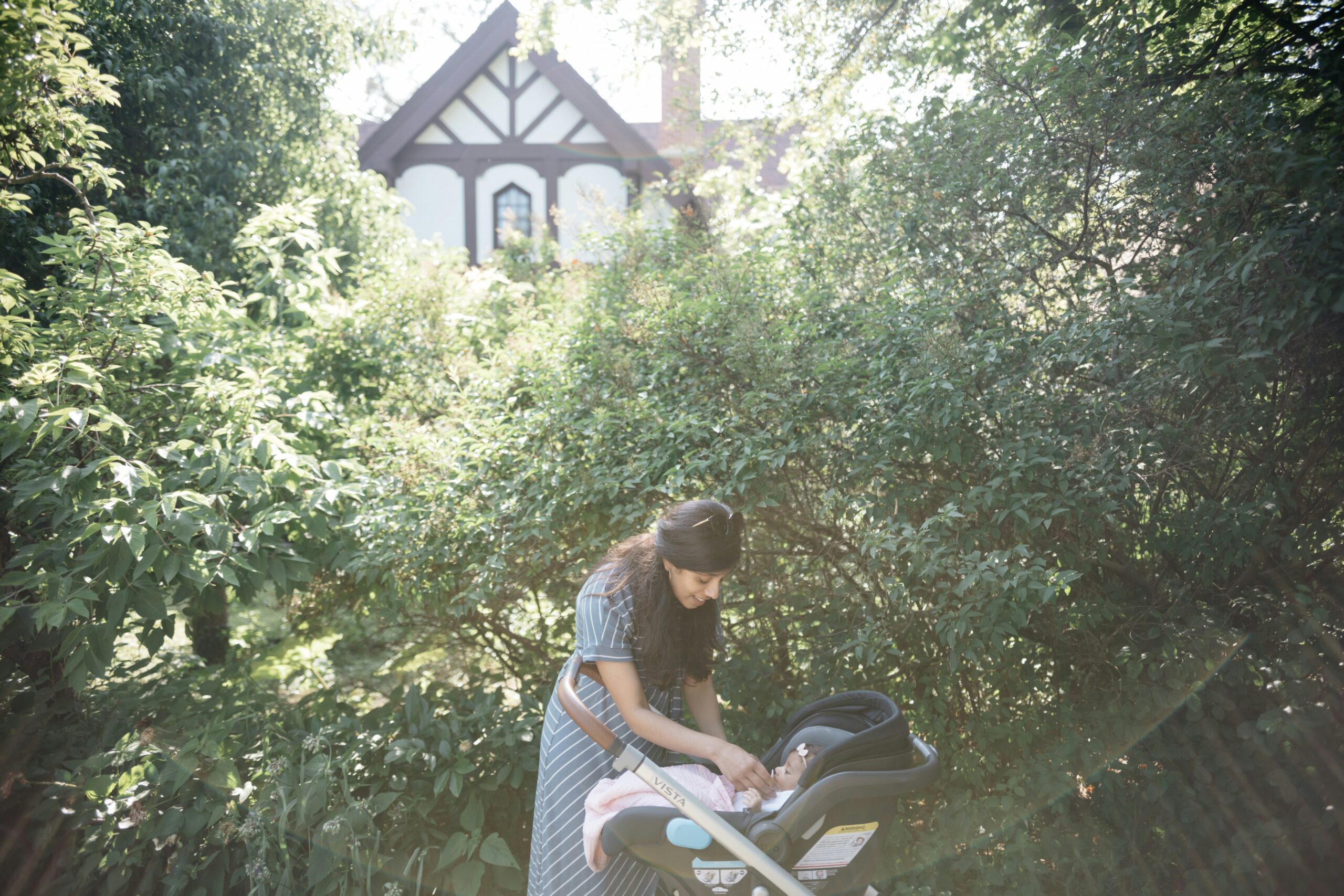The postpartum period is a time of profound change—physically, emotionally, and mentally. As new mothers navigate the joys and challenges of caring for a newborn, it’s essential to prioritize their own well-being. A holistic approach to postpartum recovery, focusing on nutrition and gentle movement, can help new moms restore balance, alleviate postpartum pain, and embrace this new chapter with grace.
The Importance of Nutrition for Postpartum Health
Nutrition plays a crucial role in postpartum recovery. The body needs extra nutrients to heal after childbirth, produce breast milk, and maintain overall health. Proper nutrition can also help reduce Mom Stress, improve mood, and support a healthy postpartum body. Incorporating a balanced diet rich in whole foods, lean proteins, and healthy fats is key.
Postpartum women may be particularly vulnerable to mood fluctuations and postpartum depression. Nutrient-rich foods that support brain health, such as leafy greens, fatty fish, nuts, and seeds, should be a staple in your diet. Consulting with a postpartum depression counselor near you can help address any mental health concerns and create a supportive care plan.
Postpartum Vitamins
Essential vitamins like vitamin D, calcium, and omega-3 fatty acids support bone health, energy levels, and mood regulation. B vitamins, particularly B12, are vital for combating fatigue and promoting cognitive function. Iron is another critical nutrient, as postpartum women are often at risk of anemia. If you would like further guidance on nutrition in the postpartum period, contact our team at Awakened Path to learn more about our Nutrition and Integrative Medicine for Mental Health Services.
Incorporating Superfoods into Your Postpartum Diet
Superfoods are nutrient-dense foods that offer significant health benefits. Including these in your postpartum diet can enhance your recovery, support energy levels, and promote overall well-being.
Top Superfoods for Postpartum Health:
- Leafy Greens: Rich in postpartum vitamins your body may be lacking like iron, calcium, and vitamins, leafy greens like spinach and kale are excellent for replenishing nutrients lost during childbirth.
- Berries: Packed with antioxidants and vitamins, berries support immune function and promote healthy skin.
- Salmon: A great source of omega-3 fatty acids, salmon supports brain health and helps reduce inflammation.
- Nuts and Seeds: These are rich in healthy fats, protein, and minerals that support energy levels and cognitive function.
- Quinoa: A complete protein, quinoa provides essential amino acids and is high in fiber, aiding digestion and overall health.
Meal Ideas Incorporating Superfoods:
- Green Smoothie: Blend spinach, kale, berries, and a banana for a nutrient-packed start to your day.
- Salmon Salad: Combine grilled salmon with leafy greens, avocado, and a light vinaigrette for a balanced meal.
- Quinoa Bowl: Mix quinoa with roasted vegetables, nuts, and seeds for a hearty, nutritious lunch.

The Role of Hydration in Postpartum Recovery
Staying hydrated is essential for postpartum recovery. Water is crucial for producing breast milk, maintaining energy levels, and supporting overall health. In fact, sources say that breastfeeding moms need about 16 cups of water per day. Dehydration can lead to fatigue, headaches, and even mood swings, which can exacerbate Mom Stress.
Tips for Staying Hydrated:
- Water Intake: Make it a habit to keep a full cup of water with you throughout the day, and eat fresh water-rich foods like watermelon, cucumber, tomatoes, and strawberries.
- Infused Water: Add slices of fruit or herbs like mint to your water for added flavor and nutritional benefits.
- Herbal Teas: Certain herbal teas, like chamomile or fennel, can provide hydration while also offering additional health benefits like improved digestion and relaxation.
Understanding the Connection Between Gut Health and Mental Health
Emerging research highlights the strong connection between gut health and mental health, often referred to as the gut-brain axis. The foods you eat can influence your mood, anxiety levels, and overall mental well-being.
Supporting Gut Health Postpartum:
- Probiotics: Incorporate probiotic-rich foods like yogurt, kefir, and fermented vegetables to support a healthy gut microbiome.
- Fiber: A diet high in fiber from fruits, vegetables, and whole grains promotes digestive health and regularity.
- Reducing Sugar: High sugar intake can lead to inflammation and negatively impact gut health. Opt for natural sweeteners or reduce sugar intake where possible.
Foods That Support Both Gut and Mental Health:
- Yogurt: Contains probiotics that support gut health and is rich in protein.
- Bananas: High in fiber and a good source of prebiotics, which feed the good bacteria in your gut.
- Oats: A slow-release carbohydrate that provides sustained energy and supports a healthy digestive system.
Embracing Gentle Movement
After childbirth, the body needs time to heal, but gentle movement can aid in recovery by improving circulation, reducing postpartum body aches, and boosting mood. Integrating activities like walking, stretching, or light yoga can help you reconnect with your body.
Yoga Meditation for Busy Moms
Yoga and meditation offer a dual benefit: physical relaxation and mental clarity. Yoga poses specifically designed for postpartum recovery can strengthen the pelvic floor, relieve tension in the back and shoulders, and enhance flexibility. Meditation practices can reduce anxiety and help moms feel more centered amidst the demands of motherhood.
Short and Sweet Stroller Walks
One of the simplest and most effective ways to incorporate gentle movement into your postpartum routine is by taking stroller walks in your neighborhood, at local parks, or even indoors at the mall if the weather isn’t conducive to being outdoors. These walks offer a great opportunity to get fresh air, enjoy a change of scenery, and introduce a bit of light exercise into your day—all while bonding with your baby. Some studies even suggest that time outdoors can help young babies learn, release happy hormones, and sleep better at night.

Accepting Your Postpartum Body
So many moms look in the mirror and feel that they don’t recognize themselves. The process of growing, birthing, and feeding another human being causes mental and physical transformation. Accepting your postpartum body is a journey that requires patience and understanding. The pressure to “bounce back” can be overwhelming, but it’s important to remember that your body has just accomplished something extraordinary. Embrace this new phase by celebrating your body’s strength and resilience.
Postpartum Body Aches: Understanding and Alleviating Discomfort
Body aches are a common experience for many new mothers. The physical strain of pregnancy and childbirth can lead to discomfort in areas like the back, neck, and joints. Understanding the causes of these aches and finding ways to alleviate them can significantly improve your postpartum experience.
Causes of Postpartum Body Aches:
- Muscle Strain: The physical demands of carrying a baby during pregnancy can lead to muscle strain, particularly in the back and abdomen.
- Hormonal Changes: The postpartum period involves a significant shift in hormone levels, which can affect joint and muscle comfort.
- Breastfeeding Posture: The repetitive strain of breastfeeding can lead to discomfort in the neck, shoulders, and upper back.
Alleviating Body Aches:
- Gentle Stretching: Incorporate gentle stretches that target the areas of discomfort. Stretching helps improve flexibility and relieve tension.
- Posture Awareness: Pay attention to your posture, especially during breastfeeding. Use supportive pillows and make sure you’re seated comfortably.
- Heat Therapy: Applying a warm compress to sore areas can help relax tense muscles and reduce discomfort.
- Massage: Consider postpartum massage therapy to target specific areas of tension and promote relaxation.
The Power of Rest and Sleep in Postpartum Healing
Rest and sleep are vital components of postpartum recovery, yet they are often the most challenging to achieve with a newborn. Prioritizing rest allows your body to heal, supports mental health, and provides the energy needed to care for your baby.
Strategies for Getting Adequate Rest:
- Allow Yourself to Rest When the Baby Sleeps: You may have heard, “sleep when the baby sleeps!” from well-meaning friends and want to roll your eyes. How can you possibly sleep during nap time when there’s so much to do to care for your baby? However, if you can, take the time to rest, nap, stretch, or do a short self-care activity if you are able instead of focusing on everything there is to do.
- Create a Calming Sleep Environment: Make your bedroom a sanctuary for rest. Use blackout curtains, a white noise machine, and keep the room cool and comfortable.
- Ask for Help: Don’t hesitate to lean on your support system. Whether it’s your partner, family, paid help, or friends, asking for help with the baby allows you to rest and recover.
Managing Mom Stress: Techniques for Emotional Balance
The emotional demands of motherhood can lead to significant stress. Managing Mom Stress is essential for both your mental health and your ability to care for your child effectively.
Mindfulness and Meditation: Incorporating mindfulness practices into your daily routine can help you stay present and reduce anxiety. Even five minutes of meditation a day can make a difference in how you feel.
Journaling: Writing down your thoughts and feelings can be a powerful way to process your emotions and gain clarity. Journaling can also help you identify patterns of stress and find ways to address them.
Breathing Exercises: Deep breathing exercises are a quick and effective way to calm your nervous system. Practice inhaling deeply through your nose, holding for a few seconds, and exhaling slowly through your mouth.
The Importance of Self-Care and Setting Boundaries
Self-care is not a luxury but a necessity, especially during the postpartum period. Taking time for yourself is essential for your well-being and enables you to be a more present and patient mother.
Creating a Self-Care Routine:
- Daily Rituals: Establish small daily rituals that bring you joy, whether it’s enjoying a cup of tea in peace, taking a short walk, or practicing a hobby you love.
- Setting Boundaries: Learn to set boundaries to protect your energy. It’s okay to say no to visitors or activities that feel overwhelming.
- Professional Support: Consider working with a counselor who specializes in postpartum health. A postpartum depression counselor near you can provide the guidance and support you need during this transition.
Creating a Support Network: The Role of Community in Postpartum Recovery
Having a strong support network is invaluable during the postpartum period. Connecting with others who understand what you’re going through can provide emotional support, practical advice, and a sense of community.
Building Your Support Network:
- Family and Friends: Don’t hesitate to lean on those close to you for help with childcare, meals, or simply to talk.
- Support Groups: Many communities offer postpartum support groups where you can connect with other new mothers.
- Online Communities: Virtual support groups and online forums can be a great way to connect with other moms, especially if in-person groups aren’t available in your area.
- Therapy: There are so many emotions that come with navigating new motherhood, and therapy can be so supportive as you heal and grow into your new role.
The Benefits of Peer Support:
- Shared Experiences: Knowing that others are going through similar challenges can be incredibly comforting.
- Advice and Resources: Fellow mothers can offer practical tips, recommendations for local resources, and emotional support.
- Reducing Isolation: Motherhood can sometimes feel isolating, but connecting with others can help reduce these feelings and provide a sense of belonging.
Embracing the Journey of Postpartum Recovery
Holistic postpartum recovery is about nurturing both body and mind. By focusing on nutrition, gentle movement, mental health, and self-care, you can support your body’s natural healing processes, reduce stress, and foster a positive mindset. Remember, recovery is a personal journey, and it’s okay to seek support along the way. Awakened Path Counseling is here to guide you through this transformative time with compassion and expertise.
Embrace the changes, honor your needs, and give yourself the grace to heal. This time is as much about caring for yourself as it is about caring for your baby. With the right tools, support, and mindset, you can navigate the postpartum period with confidence and resilience.


